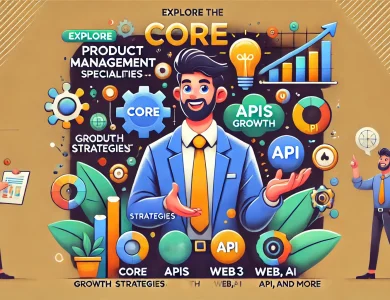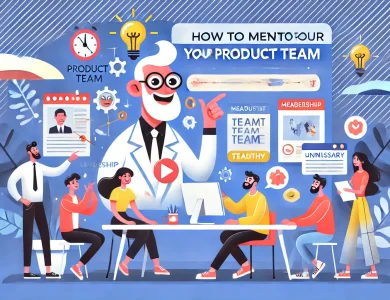Top Certifications for Product Management: Driving Strategic Growth and Business Impact

As the role of product management evolves, certifications have become a powerful way for professionals to demonstrate their skills, align with business objectives, and stay competitive. Certifications can help product managers build expertise in Agile practices, AI, strategic decision-making, and leadership, ultimately contributing to business growth and innovation.
This article explores the top certifications for product managers, detailing how they help professionals at different stages of their careers and how each certification aligns with broader business goals.
Why Certifications Matter for Product Managers
Certifications are no longer just an add-on to your resume—they are a strategic tool for career advancement. For product managers, certifications:
- Build credibility and trust with stakeholders by demonstrating deep expertise in specialized areas like Agile, AI, and leadership.
- Advance careers by helping product managers develop the critical skills necessary to navigate complex business challenges.
- Enhance business performance by ensuring that certified product managers can align their work with company-wide objectives like product-market fit, customer satisfaction, and revenue growth.
How to Choose the Right Product Management Certification
When selecting a certification, it’s essential to align it with both your personal career trajectory and your company’s goals:
- Entry-Level Managers: Look for certifications that focus on foundational product management skills, such as backlog management or customer research, to help you grow into the role.
- Experienced Managers: Consider certifications that emphasize leadership, strategic thinking, and cross-functional collaboration, such as Certified Product Manager (CPM) or SAFe POPM.
- Aspiring Executives: Choose programs that delve into AI, business strategy, and organizational leadership, equipping you to lead large teams and scale products effectively.
Benefits of Certifications for Product Managers
Certifications provide both short-term and long-term career benefits:
- Skill development: Gain a structured approach to learning new frameworks and methodologies that directly impact your product’s success.
- Networking opportunities: Many certification programs create communities of peers and mentors, allowing you to build relationships with experienced product leaders.
- Career advancement: Certifications, especially those recognized globally, help position you for leadership roles, signaling your readiness for increased responsibility and strategic influence.
Industry Recognition of Product Management Certifications
Certain certifications are highly respected across industries:
- Agile certifications like CSPO and PSPO are essential for product managers working in Agile frameworks, helping to align product strategy with fast-paced development cycles.
- Pragmatic Institute and Product School certifications are recognized for their focus on product lifecycle management, product-market fit, and customer insights, which are critical to business success.
Entry-Level Certifications for Aspiring Product Managers
Certified Scrum Product Owner (CSPO)
The CSPO certification is essential for product managers working in Agile environments. Beyond the basics of backlog management and sprint planning, CSPO emphasizes:
- Strategic alignment: How to prioritize the product backlog to align with business objectives like time-to-market and customer satisfaction.
- Stakeholder engagement: Building relationships with key stakeholders to ensure the product vision is communicated clearly, reducing delays and fostering innovation.
Product Management Certification by Product School
Product School’s certification is known for offering a holistic product management experience. It covers:
- Roadmap development and strategic planning: Equipping managers with tools to craft roadmaps that align with both customer feedback and business KPIs, ensuring that products deliver value.
- Leadership development: Offering insights into how to manage and inspire teams while working cross-functionally with marketing, engineering, and executive leadership.
Pragmatic Institute Certification (PMC)
The Pragmatic Institute Certification (PMC) is recognized for its practical, market-driven approach. It focuses on:
- Market-driven product development: Ensuring that product managers align product strategy with real market needs, helping companies avoid costly misalignment between development and demand.
- Product lifecycle and go-to-market strategies: This certification trains managers to successfully lead products through every stage, ensuring sustained product-market fit and long-term business success.
Certified Product Manager (CPM) by AIPMM
The Certified Product Manager (CPM) certification helps mid-career product managers:
- Develop competitive positioning strategies: Equip yourself with the tools to perform competitive analysis and use those insights to differentiate products in the marketplace.
- Strategic product lifecycle management: Ensure product development aligns with the company’s overall business goals, enabling more efficient use of resources and quicker responses to market changes.
Google Product Management Certificate
Google’s Product Management Certificate is invaluable for product managers who want to build a strong foundation in technical product management. It focuses on:
- Technical fluency: Equip yourself to work closely with engineering teams, understanding how technical decisions impact the scalability and sustainability of the product.
- Data-driven product strategy: Use Google’s proprietary tools and frameworks to incorporate data analytics into decision-making, aligning product performance with company revenue goals.
SAFe Product Owner/Product Manager (POPM) Certification
The SAFe POPM certification is a must-have for product managers working in large-scale Agile environments. It focuses on:
- Agile at scale: Understanding how to scale Agile across multiple teams and departments, ensuring that large organizations can maintain agility while aligning with overarching business strategy.
- Strategic backlog management: Prioritizing product features based on both customer impact and business needs, ensuring that development resources are allocated optimally.
Professional Scrum Product Owner (PSPO) by Scrum.org
The PSPO certification is an advanced certification for product managers who want to deepen their understanding of Agile principles. It goes beyond the basics by covering:
- Advanced release management: Aligning product releases with business milestones, ensuring that product iterations contribute to broader strategic goals.
- Product vision leadership: Helping product managers maintain a cohesive product vision while managing multiple stakeholder expectations.
AI for Product Managers by Udacity
The AI for Product Managers certification by Udacity trains product managers to:
- Integrate AI into product development: Learn how to oversee AI-driven product strategies and collaborate with data science teams to build AI-powered products that provide competitive advantages.
- Data and machine learning workflows: This course emphasizes understanding the core workflows in AI and machine learning, enabling product managers to make informed decisions about leveraging these technologies in real-world business applications.
Best Practices for Leveraging Certifications
Applying Certifications to Real Business Challenges
To gain the most from your certification:
- Integrate learnings into everyday work: Apply new methodologies and frameworks to your current product challenges to test their real-world effectiveness.
- Bridge theory and practice: Use certifications to enhance both your day-to-day decision-making and long-term strategic planning, ensuring that each certification directly contributes to your company’s business goals.
Combining Certifications with Practical Experience
Certifications provide theoretical knowledge, but it’s the combination of practical experience and certification that drives success:
- Mentorship and application: Pair your certifications with mentorship from experienced product leaders to see how frameworks and methodologies are applied in real business contexts.
Building a Certification Path Based on Career Stage
Map out your certification journey according to your career goals:
- Entry-level: Start with foundational certifications like CSPO to learn core skills.
- Mid-level: Opt for certifications like PMC or CPM to deepen your strategic knowledge.
- Advanced: Choose certifications focused on leadership or emerging technologies like SAFe POPM or AI Product Management to position yourself for executive roles.
Conclusion
Certifications offer product managers a structured way to advance their skills, align with business objectives, and drive product success. Whether you’re new to the field or looking to grow into leadership roles, choosing the right certification is a strategic decision that can impact your career trajectory and business outcomes. By selecting certifications that align with your career goals and company objectives, you can ensure that your learning directly translates to measurable business impact.




